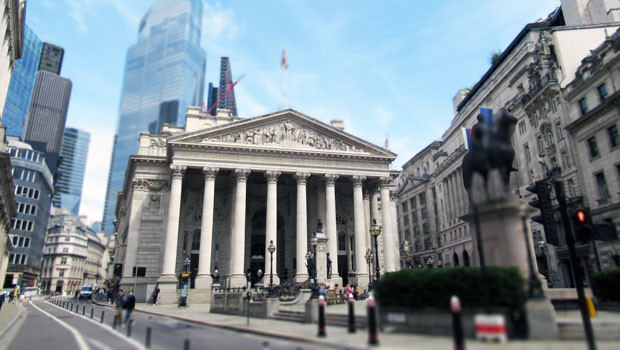London pre-open: Stocks seen flat amid earnings barrage

London stocks were set for a flat open on Tuesday as investors mulled the latest retail inflation data and braced for a barrage of earnings from the likes of BP, Standard Chartered and Diageo.
The FTSE 100 was called to open unchanged at around 8,292.
A survey out earlier from the British Retail Consortium and NielsenIQ showed that shop inflation was unchanged in July, but cost pressures were "lurking over the horizon" as commodity prices remained at risk from climate change and geopolitical tensions.
Shop price annual inflation was unchanged at 0.2%, below the three-month average rate of 0.3%, while annual growth remained at its lowest rate since October 2021.
Non-food remained in deflation at -0.9% in July, up from -1.0% in the preceding month, while food inflation slowed to 2.3% from 2.5% in June. A poor summer and weak demand saw clothing and footwear prices down for the seventh consecutive month while book prices also fell.
Fresh food inflation slowed further in July, to 1.4% from 1.5% in June. This is below the three-month average rate of 1.6%. Inflation is its lowest rate since November 2021.
"The 2023 declines in global food commodity prices continued to feed through, helping bring down food inflation rates over the first seven months of 2024. However this shows signs of reversing, suggesting renewed pressure on food prices in the future," said BRC chief executive Helen Dickinson.
Sports gatherings for Wimbledon and the Euros benefited from discounted snacking items such as crisps and soft drinks, she added.
"With the outlook for commodity prices remaining uncertain due to the impact of climate change on harvests domestically and globally, as well as rising geopolitical tensions, renewed inflationary pressures could be lurking just over the horizon."
Mike Watkins, head of retailer and business insight at NielsenIQ, said shoppers can expect a lower level of inflation "for a number of months to come", but warned that with a continuing squeeze on household finances, slow rebound in consumer confidence and poor summer weather so far, "retailers will still need to keep any price increases to a minimum to encourage shoppers to spend".
In corporate news, Asia-focused bank Standard Chartered unveiled its biggest-ever share buyback and lifted guidance as interim earnings beat estimates.
The company said it would buy back $1.5bn in shares starting immediately. Pre-tax profit for the first six months of the year rose 5% to $3.5bn, compared with average forecasts of $3.46bn.
StanChart said it now expects operating income to grow more than 7% at constant currency rates compared with a previous projection of between 5% and 7%.
BP swung into the red on a reported basis in the second quarter as a result of $2.8bn of so-called “adjusting items”, but that didn’t stop the energy giant from beating market forecasts on an underlying basis and unveiling another $1.75bn share buyback programme.
The company booked a replacement cost loss - which reflects the replacement cost of inventories sold, adjusted for inventory holding gains and losses - of $16m for the three months to 30 June, compared with a profit of $2.34bn a year earlier.
Nevertheless, underlying RC profit - BP’s preferred measure of profitability - improved by 6% to $2.76bn, well ahead of the consensus forecast of $2.54bn.
Fresnillo reported a strong set of interim results, with adjusted revenue increasing 9% to $1,560.2m and gross profit rising 38.8% to $392.4m, driven by higher prices and volumes of silver, zinc, and lead despite a drop in gold volume.
EBITDA surged 55.1% to $544.2m, and profit before tax rocketed 480.4% to $277.8m, while free cash flow improved significantly to $187.4m from $18.7m in the same period last year.
Adjusted earnings per share, however, were down 57.7% at 4.4 cents. Despite higher production costs and decreased gold production, the company maintained a strong balance sheet with net debt-to-EBITDA reduced to 0.17x, and declared an interim dividend of 6.4 cents per share.